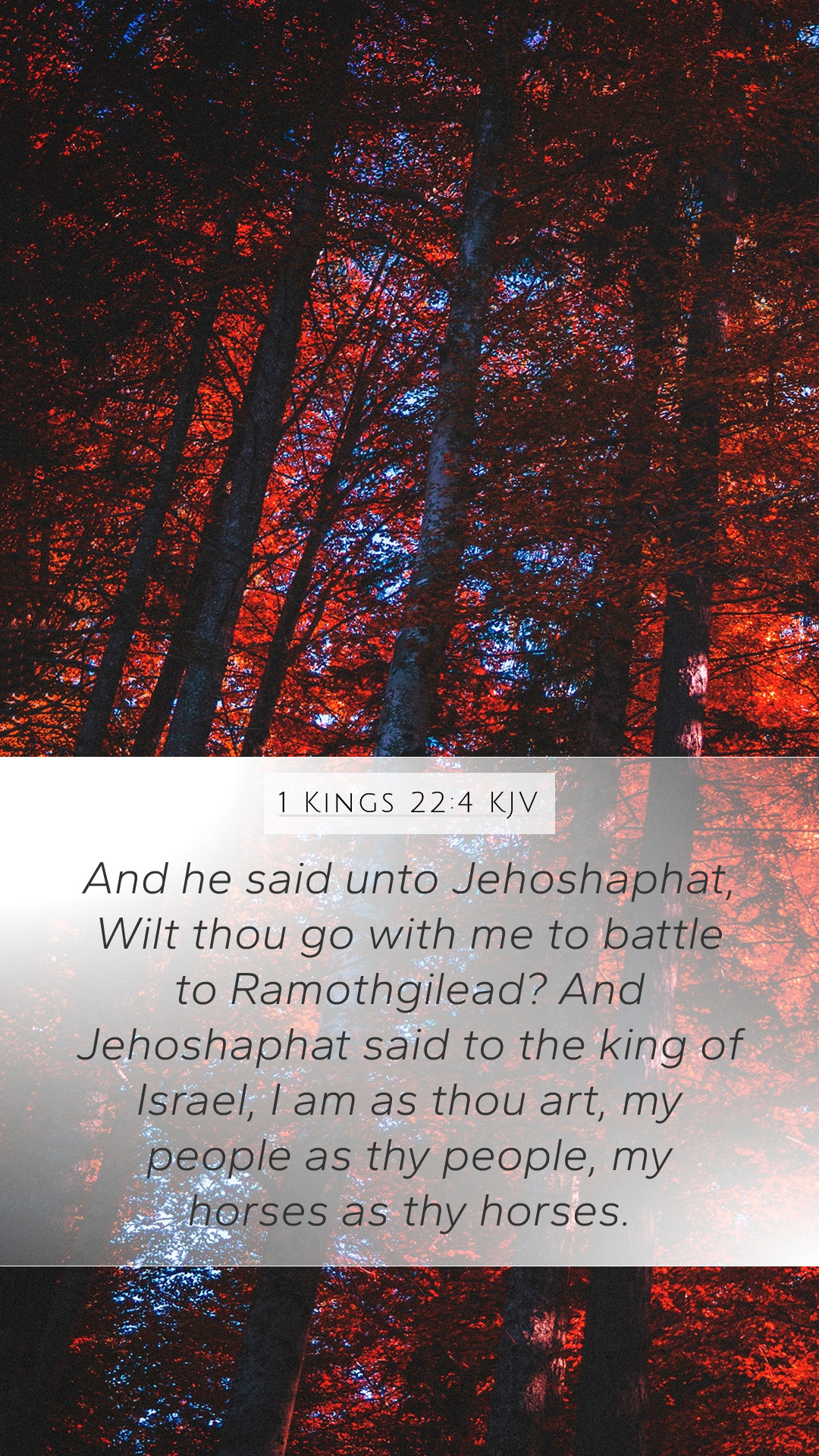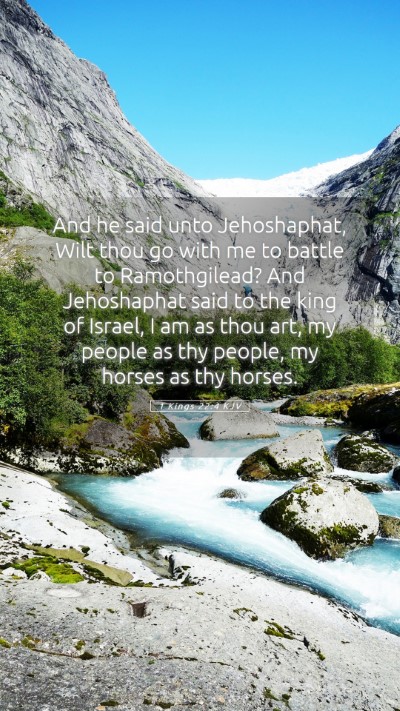Bible Verse Meanings and Interpretations
Understanding 1 Kings 22:4
Verse Context: In 1 Kings 22:4, King Jehoshaphat of Judah is approached by King Ahab of Israel, who seeks his help in a military campaign against Ramses II. This request reflects the political alliances and tensions of the time, as Israel and Judah had a complex relationship.
Summary of Insights from Public Domain Commentaries
Matthew Henry's Commentary
Matthew Henry emphasizes the importance of inquiry in this verse. He interprets King Ahab's request for Jehoshaphat's assistance as a demonstration of seeking alliance and support in times of conflict. Henry notes that this situation reveals Ahab’s reliance on Jehoshaphat and highlights the necessity of seeking godly counsel in decision-making, as Ahab later consults prophets before going into battle.
Albert Barnes' Notes on the Bible
Albert Barnes focuses on the interrelation between these two kingdoms, Ahab's northern kingdom of Israel and Jehoshaphat's southern kingdom of Judah. He points out that the unity, as portrayed in this alliance, underscores the importance of cooperation and understanding between different factions for common goals. Barnes elucidates that Jehoshaphat’s cautious approach to align with Ahab reflects a wise leader's characteristic of ensuring God’s blessing before embarking on significant ventures.
Adam Clarke's Commentary
Adam Clarke highlights the political and spiritual implications of Ahab’s proposal to Jehoshaphat. Clarke suggests that true wisdom lies not just in forming alliances but in recognizing the moral and spiritual impoverishments of such partnerships, especially considering Ahab’s notorious wickedness. Clarke warns readers to interpret this interaction as a cautionary tale against forming unholy alliances, which could lead to spiritual compromise.
Key Themes and Lessons
- Political Alliances: The verse highlights the nature of alliances in the ancient Near East, demonstrating how political decisions required mutual respect and agreement.
- Seeking Counsel: The importance of seeking counsel from the righteous before making decisions that could have significant consequences for oneself and one’s nation.
- Spiritual Discernment: The need for careful discernment when entering agreements, particularly with those who may not share one’s ethical or spiritual beliefs.
- Importance of Unity: This text illustrates the benefits of unity among nations or groups, particularly in times of need, while also reminding one to be mindful of motivations.
Cross References
- 2 Chronicles 18:1-3: A passage that outlines the alliance and the subsequent inquiry into God’s will before the battle.
- 1 Kings 22:7-8: Jehoshaphat's query regarding the prophets' insights furthering the narrative of seeking divine guidance.
- James 1:5: A reminder to seek wisdom from God in all decisions, particularly those affecting leadership and direction.
Applying Bible Verse Interpretations to Daily Life
Understanding this verse can help individuals evaluate their own alliances and partnerships. Questions to consider might include:
- Am I entering into relationships or commitments that align with my values?
- Do I seek God's counsel in my decisions?
- How can I show discernment in my friendships and partnerships?
Conclusion
The study and understanding of 1 Kings 22:4 shed light on the complexities of relationships, counsel, and the importance of seeking divine wisdom when faced with significant choices. This verse continues to resonate with the current understanding of how to navigate alliances and agreements in life today.


